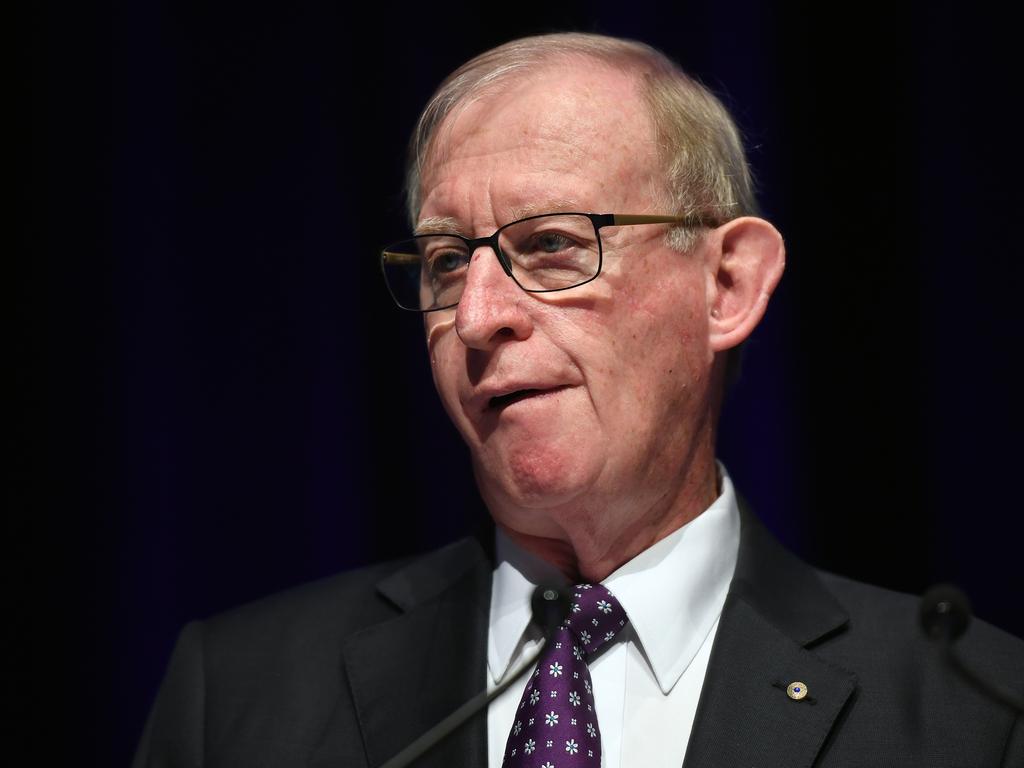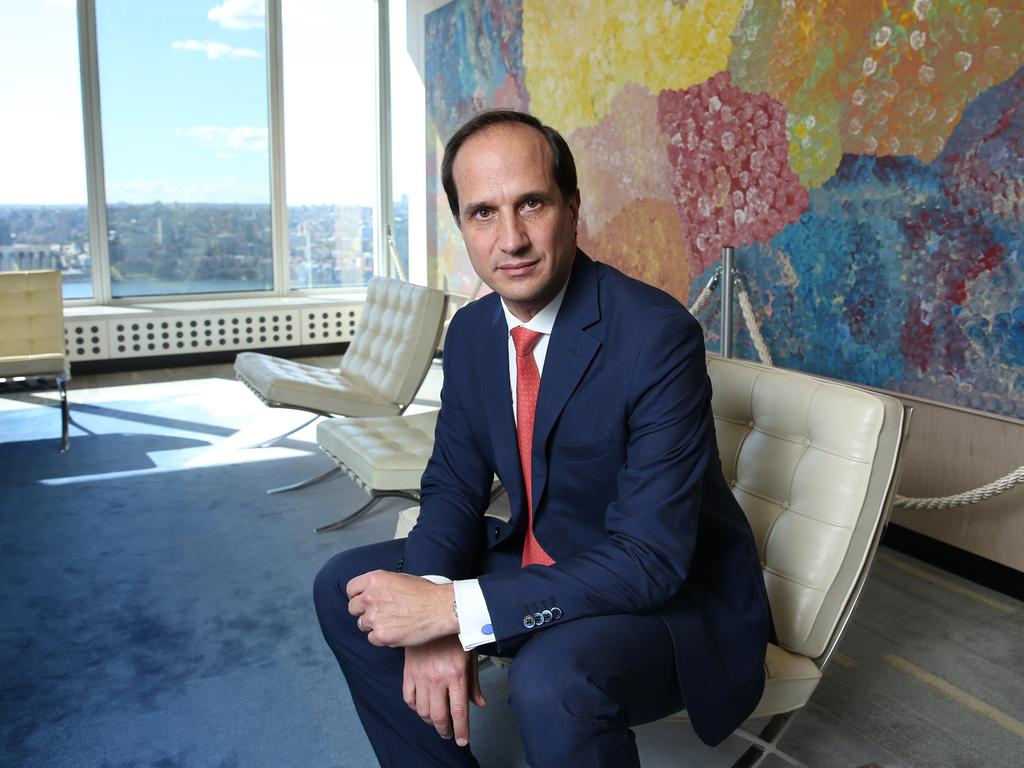AMP buckles to pressure to release Boe Pahari harassment probe amid growing investor pressure
AMP is locked in a battle with sexual harassment complainant Julia Szlakowski.

AMP is locked in a battle with sexual harassment complainant Julia Szlakowski, after the wealth company bowed to pressure to release the three-year-old investigation into the matter, which her lawyers say she has never seen.
The 2017 sexual harassment complaint against Boe Pahari, who was last month promoted to run AMP Capital, has sparked a fierce reaction against the company’s board and Mr Pahari.
Investors are urging accountability over the matter and have increasingly labelled Mr Pahari’s position untenable, given explicit details of the complaint made public by Ms Szlakowski.
In an ASX statement on Wednesday, the David Murray-chaired AMP said the company had “always acknowledged the seriousness” of the 2017 complaint against Mr Pahari, and that it was now willing to release an investigation into the matter.
That investigation was undertaken by Andrew Burns QC, a specialist in labour and employment law in the UK.
Ms Szlakowski this week went public with the substance of her allegations against Mr Pahari in a statement that accused AMP of “persistent and misleading efforts” to downplay the sexual harassment claims.
Ms Szlakowski lodged a seven-page complaint in 2017, which outlined a number of instances of Mr Pahari using inappropriate language, extending her hotel booking without permission and referring to his “limp dick” when she declined to use his credit card to buy clothing.
Sordid details of the complaint have led to AMP employees dubbing the controversy “limp dick gate”, according to staff communication seen by The Australian.
But in another twist in the imbroglio, AMP’s statement triggered a heated response from Ms Szlakowski’s lawyers, who said she had not been previously provided with the investigation document of her complaint.

Maurice Blackburn Principal Josh Bornstein, acting for Ms Szlakowski, said that while his client had no concern with her full complaint being released along with a short document AMP provided setting out findings of the investigation, she has never been given a copy of the full investigation.
“AMP in its public statement today say they want to ensure fair treatment for my client in seeking her consent to publicly release documents relating to her sexual harassment complaint,” Mr Bornstein added.
“The fact remains, however, that our client has never been provided with a copy of the full investigation report into her complaint, and without this it makes it very difficult for her to provide meaningful consent to AMP’s request today.
“In line with AMP’s promise to afford fair treatment to Julia Szlakowski, we have written to AMP conveying her consent to the release of her full complaint and the two-page investigation finding document that she was provided with.”
Mr Bornstein is also requesting other information, including the terms of reference provided to Mr Burns ahead of him undertaking the inquiry, communication between the barrister and AMP or the company’s lawyers, and documents relating to disciplinary action taken against Mr Pahari.
Mr Pahari received a financial penalty from the prior AMP board and management over the matter of as much as $500,000, while Ms Szlakowski settled with the company and parted ways after feeling the investigation did not adequately hold him to account.
AMP’s statement on Wednesday said the board had sought to protect the confidentiality of the investigation “out of respect for all parties involved” and to ensure employees had confidence that their confidentiality would be protected in making complaints.
It noted Ms Szlakowski and her legal advisers had since publicly called for further details to be released.
The AMP board said it was “willing to release” the investigation report and its findings if Ms Szlakowski’s legal advisers consented, as Mr Pahari had already done.
AMP noted the report would be redacted to remove names, initials and job titles of any party, other than Ms Szlakowski and Mr Pahari, to protect their confidentiality. The statement also sought to highlight that the investigation and the consequences imposed were dealt with by prior management and board members.
“The matter and the consequences imposed on Mr Pahari were overseen at the time (in 2017) by the AMP Capital CEO, the AMP Capital chairman and the AMP CEO. The former group board were also informed,” it said.
“The current group board was advised of the matter prior to Mr Pahari’s appointment as AMP Capital CEO and another review was undertaken.
“Following that review, all board members were satisfied with the thoroughness of the investigation and the process followed, and that the consequences applied to Mr Pahari were both significant and appropriate.”
But given the nature of the conduct and the sudden departure of AMP’s Australia boss Alex Wade early this month over conduct issues and the sending of inappropriate photos to a female employee, shareholder patience has worn thin.
It has also led to questions being asked about the respective judgments of Mr Murray and AMP chief executive Francesco De Ferrari.
While not commenting specifically on the AMP matter, Sex Discrimination Commissioner at the Australian Human Rights Commission Kate Jenkins emphasised companies needed to focus more on prevention, and those at the top had to lead by example.
“How they (the leadership) respond and react does really determine how the whole organisation responds and reacts,” she told The Australian, also noting that her inquiry into workplace harassment had delved into the cost to employers who dragged the chain on prevention.
“There is no question that the economic cost is productivity, recruitment of the best and brightest talent and then share price, and shareholder and customer.”
Ms Jenkins said CEOs and senior executives had to look well beyond having a policy and reacting to sexual harassment after it occurred.
“There are lots of policies and ticking a box, that sense of compliance in tick-a-box way — I really didn’t see any direct correlation between a good policy … and the experience of the actual worker,” she said.
Substantial shareholder fund manager Allan Gray was the latest to go on the record against the AMP board.
“The board appears to be tone deaf to the cultural issues at play,” said Allan Gray portfolio manager Simon Mawhinney.
“It is very hard for us to envisage an outcome, assuming the allegations are true, where a person like this could earn the trust, confidence and respect of colleagues, clients and shareholders. Without this, leadership is significantly weakened and, in this case, probably untenable,” he added.
Mr Mawhinney’s comments followed those of Australian Council of Superannuation Investors chief executive Louise Davidson, who said: “It is hard to see how Pahari’s position as (AMP Capital) chief executive remains tenable in light of these more detailed revelations.”








To join the conversation, please log in. Don't have an account? Register
Join the conversation, you are commenting as Logout